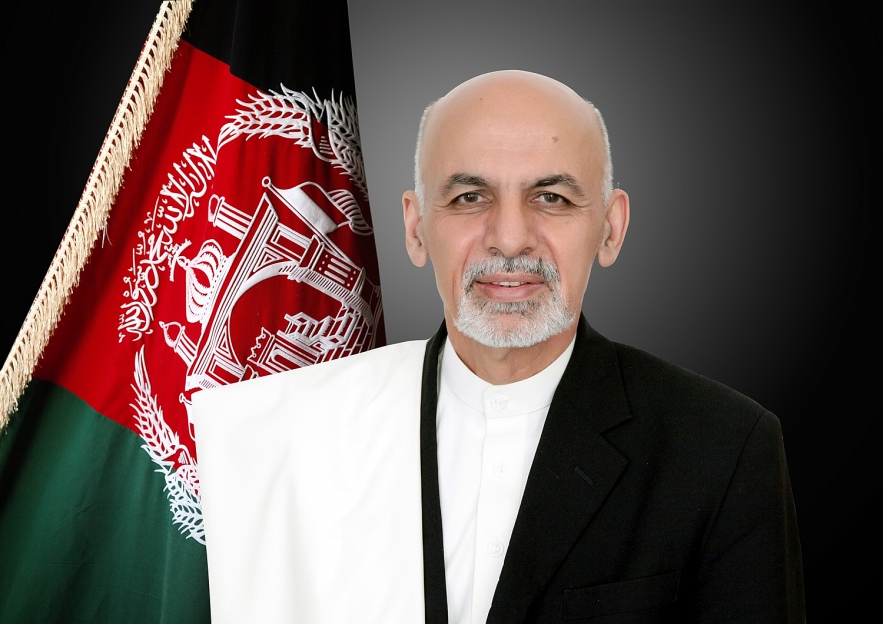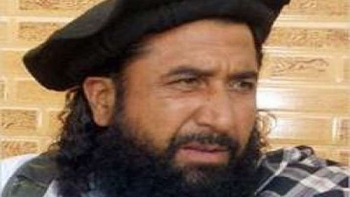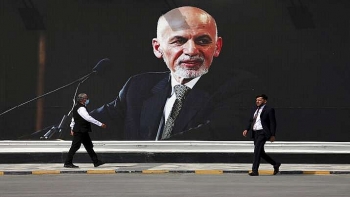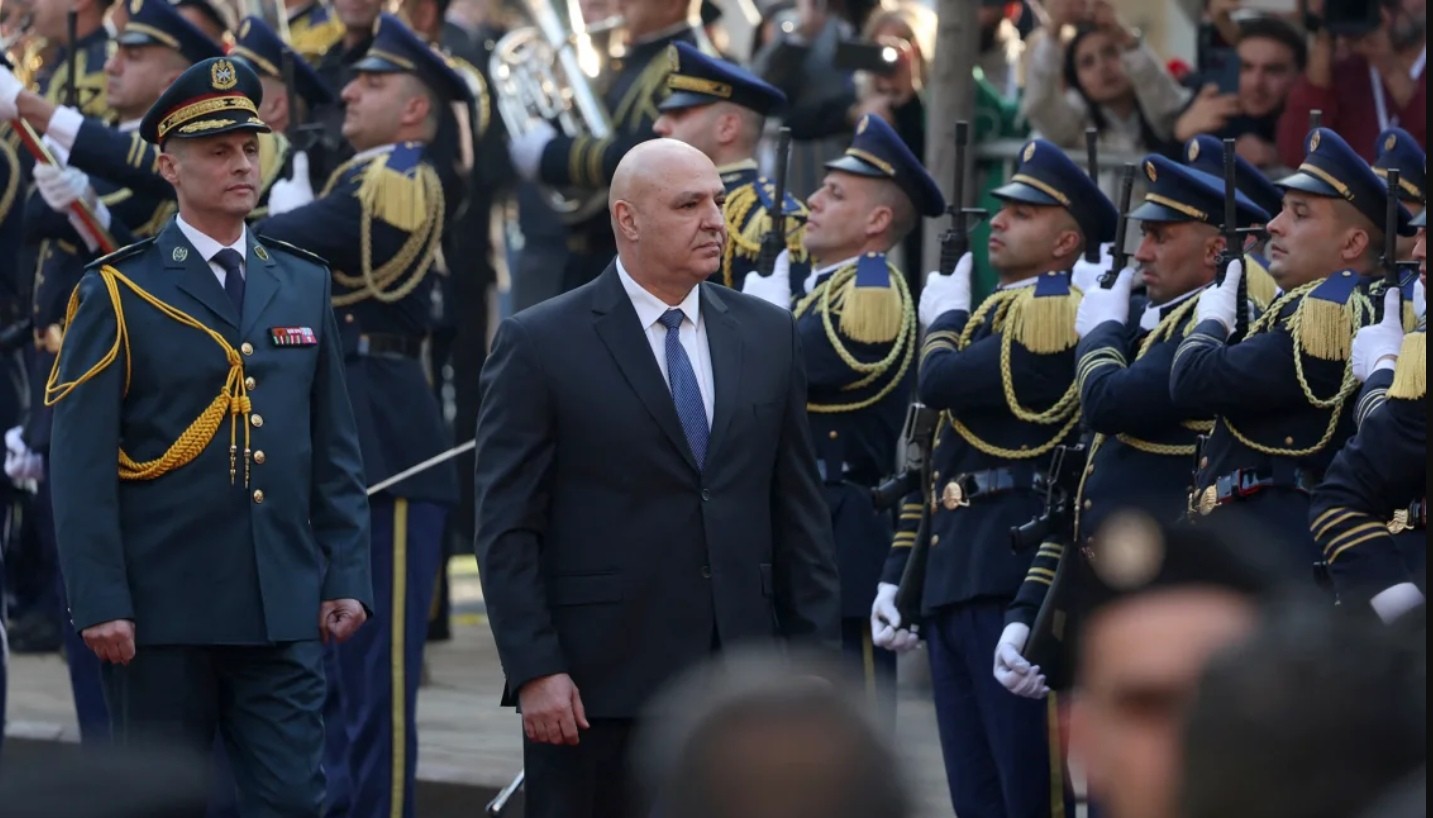Who is Afghanistan President Ashraf Ghani: Biography, Personal Profile, Family
 |
| Afghanistan President Ashraf Ghani: Biography, Personal Profile |
Who is Ashraf Ghani - Biography
Mohammad Ashraf Ghani grew up in Afghanistan before pursuing his education abroad.
Like so many Afghans, foreign invasion and civil war led to the persecution of his family and forced him to remain in exile. Whilst abroad, he became a leading scholar of Political Science and Anthropology and then worked at the World Bank where he learned the tools of international development.
Following the fall of the Taliban in 2001,he returned to Afghanistan to devote his unique skills and knowledge to rebuilding the country. He advised interim President Karzai and served as the Finance Minister in the Transitional Islamic State of Afghanistan until December 2004.
During his tenure as Finance Minister, he designed a package of reforms and initiated several public investment programs that led to significant improvements in the livelihoods of ordinary Afghans across the country. He declined to join the newly elected Government in December 2004.
However, he remained an influential voice in the political circles both in Afghanistan and abroad. He served as the chairman of the Transition Coordination Commission (TCC) in 2010 which was responsible for transferring authority from foreign to national troops. He resigned from TCC to run for president in October 2013. He was declared winner on September 22, 2014.
Rula Ghani, Afghanistan’s Unusually Prominent First Lady
When Ghani delivered his inaugural address he surprised his audience by publicly addressing his wife, thanking her for her efforts in helping women, children, and the internally displaced persons (IDPs).
Rula Ghani was born into a Lebanese Christian family, and is a dual citizen of Lebanon and the U.S. She met her future husband when they were both studying at the American University of Beirut, and the couple lived in Afghanistan for a few years after marrying in 1975. In 1978, Rula and her husband moved to the United States, where he pursued a Ph.D. while she raised their children. The family returned to Afghanistan in 2002, when Ashraf Ghani was appointed finance minister of Afghanistan. Rula was reportedly shocked to see the living conditions many Afghan children were enduring, and went to work for an organization called Aschiana, which helps feed and educate street children.
Rula Ghani has often been compared to Soraya Tarzi, known as Queen Soraya, wife of King Amanullah Khan, who ruled Afghanistan from 1919. The queen – who received an honorary degree from the University of Oxford – was a target for criticism because of her perceived modernity. The queen served as minister of education, and sought to improve the lot of women in society.
Afghan President Ashraf Ghani flees the countryTaliban fighters entered Afghanistan's Presidential Palace hours after President Ashraf Ghani fled the country on Sunday (15 August, 2021), a milestone in the insurgent group's assumption of control over capital city Kabul. As Afghans from the presidential palace to the frenzied streets fled the militant group's rapid advance, the Taliban prepared to take full control of the country once more. The Taliban ordered their fighters to enter Kabul because they believed police had deserted all their positions, a Taliban spokesman told NBC News, which could not confirm the claims. The spokesman urged residents of the capital to remain calm. |
Taliban enters presidential palace in Kabul:
Afghanistan President Ashraf Ghani: Early Life
Dr. Ghani was born into an influential family in Afghanistan in 1949, and spent his early life in the province of Logar. He completed his primary and secondary education in Habibia High School in Kabul. Growing up in Kabul under a monarchy, where his father worked in various senior capacities, he has been immersed in politics from his early days.
Full Name: Ashraf Ghani’s full name is Mohammad Ashraf Ghani Ahmadzai, however, he prefers to go by just Ashraf Ghani, and has made a formal request regarding this. Many believe that during the 2014 presidential elections, he used his full name (Ahmadzai) when campaigning in order to further identify himself as a Pashtun.
Afghanistan President Ashraf Ghani: Education and Early Career
As a young man, Dr. Ghani travelled to Lebanon to attend the American University in Beirut, where he met his future wife, Rula, and earned his first degree in 1973. He returned to Afghanistan in 1974 to teach Afghan studies and Anthropology at Kabul University before winning a government scholarship to study for a Master’s degree in Anthropology at New York’s Columbia University. He left Afghanistan in 1977, intending to be away for two years.
When pro-Soviet forces came to power, most of the male members of his family were imprisoned and he was stranded in the US. He stayed at Columbia University and earned his Ph.D. there, with a doctoral thesis entitled ‘Production and domination: Afghanistan, 1747-1901’, and was immediately invited to teach at University of California, Berkeley (1983) and then at Johns Hopkins University (1983-1991). During this period, he became a frequent commentator on the BBC Dari and Pashto services, broadcast in Afghanistan.
 Who is Taliban Leader Mullah Abdul Ghani Baradar, likely to be next Afghanistan President Who is Taliban Leader Mullah Abdul Ghani Baradar, likely to be next Afghanistan President |
 Where Afghanistan President Ghani Had Gone? Where Afghanistan President Ghani Had Gone? |
Afghanistan President Ashraf Ghani: Career
In 1991, Dr. Ghani joined the World Bank as lead anthropologist, advising on the human dimension to economic programs. He served for 11 years, initially working on projects in East Asia, but moving in the mid-nineties towards articulating the Bank’s social policy and reviewing country strategies, conditionalities, and designing reform programs.
In 1996, he pioneered the application of institutional and organizational analysis to macro processes of change and reform, working directly on the adjustment program of the Russian coal industry and carrying out reviews of the Bank’s country assistance strategies and structural adjustment programs globally.
He spent five years in China, India, and Russia managing large-scale development and institutional transformation projects. Whilst at the World Bank, Dr. Ghani attended the Harvard-INSEAD and Stanford business school leadership training program.
Work After 2001
Following the ousting of the Taliban in late 2001, Dr. Ghani was asked to serve as Special Adviser to Ambassador Lakhdar Brahimi, the UN Secretary General’s special envoy to Afghanistan. In that capacity, Dr. Ghani returned to Afghanistan and worked on the design, negotiation and implementation of the Bonn Agreement, which set out the roadmap for transition to a new government based on popular consent. During the Interim Administration, Dr. Ghani served, on a pro bono basis, as Chief Adviser to Interim President Karzai and was among the first officials to disclose his own assets. In this capacity, he worked on the preparation of the Loya Jirgas (grand assemblies) that elected president Karzai and approved the constitution.
Work as Finance Minister
As Afghanistan’s Finance Minister for the duration of the Transitional Administration, Dr. Ghani is widely credited with the design and implementation of some of the most extensive and challenging reforms of the period.
He issued a new currency in record time; computerized the operations of treasury; institutionalized the single treasury account; adopted a policy of no-deficit financing; introduced the budget as the central instrument of policy; centralized revenue; reformed the tariff system and overhauled customs; and instituted regular reporting to the cabinet, the people of Afghanistan, and international stakeholders as a tool of transparency and accountability.
Dr. Ghani has combined personal integrity with extremely tough measures against corruption. When he became Finance Minister, he fired corrupt officials from the Finance Ministry, ignoring those who threatened to take revenge. He refused to pay the army until they produced a genuine roster of soldiers, rightly suspecting that the figures were exaggerated so as to claim extra money.
Dr. Ghani harnessed his knowledge of the international system to break new ground in coordinating donor assistance. He required donors to keep their interventions to three sectors, thereby bringing clarity and mutual accountability to their relations with government counterparts, and preparing a development strategy that put the Afghans in the driver’s seat regarding accountability for their future.
In recognition of his services, he was awarded the Sayed Jamal-ud-Din Afghan medal, the highest civilian award in the country. He was recognized as the Best Finance Minister of Asia in 2003 by Emerging Markets for his efforts.
On March 31-1 April 2004, he presented a seven-year program of public investment, ‘Securing Afghanistan’s Future’, to an international conference in Berlin attended by 65 finance and foreign ministers. Described as the most comprehensive program ever prepared and presented by a poor country to the international community, ‘Securing Afghanistan’s Future’ was prepared by a team of one-hundred experts working under the supervision of a committee chaired by Dr. Ghani. The concept of a double-compact, between the donors and the government of Afghanistan on the one hand and between the government and people of Afghanistan on the other, underpinned the program of investment in ‘Securing Afghanistan’s Future’.
The donors pledged $8.2 billion at the conference for the first three years of the program –- the exact amount asked by the government — and agreed that the government’s request for a total seven-year package of assistance of $27.5 billion was justified.
Throughout his career, Dr. Ghani has focused relentlessly on poverty eradication through the creation of wealth and the establishment of the rights of citizenship. In Afghanistan, he is attributed with designing the National Solidarity Program, a program of block grants to villages in which elected village councils determine both the priorities and the mechanisms of implementation. The program has been rolled out across the country and has become so successful that other countries around the world are seeking to emulate it.
Dr. Ghani also partnered with the Ministry of Communication to ensure that telecom licenses were granted on a fully-transparent basis. As a result, the number of mobile phones in the country jumped from 100 in July 2002 to over a million at the end of 2005. Private investment in the sector exceeded $200 million and the telecom sector emerged as one of the major sectors of revenue generation for the government.
Post-Finance Ministry
After the election of President Karzai in October 2004, Mr Ghani declined to join the cabinet and instead asked to be appointed as Chancellor of Kabul University. As Chancellor, he was engaged in articulating the concept of shared governance among the faculty, students, and staff and advocating a vision of the University where men and women with skills and commitment to lead their country in the age of globalization can be trained.
Dr. Ghani subsequently founded the Institute for State Effectiveness, to help governments and their international partners to build more effective, accountable systems of government. As Chairman of the Institute, Dr. Ghani co-authored a book, ‘Fixing Failed States’, to international acclaim.
As a candidate during the 2009 presidential elections, he placed fourth. In 2010, he served as chairman of the Transition Coordination Commission. TCC was responsible for transfer of power from ISAF/NATO troops to Afghan Security Forces. During his time at TCC, he visited all of the 34 provinces several times.
On October 1st 2013, he resigned as the chairman of TCC to run for presidential elections in 2014. He was declared winner of the June 14th runoff on September 22, 2014 with 55.27% of total votes. He was sworn in as president on September 29th, 2014.


























